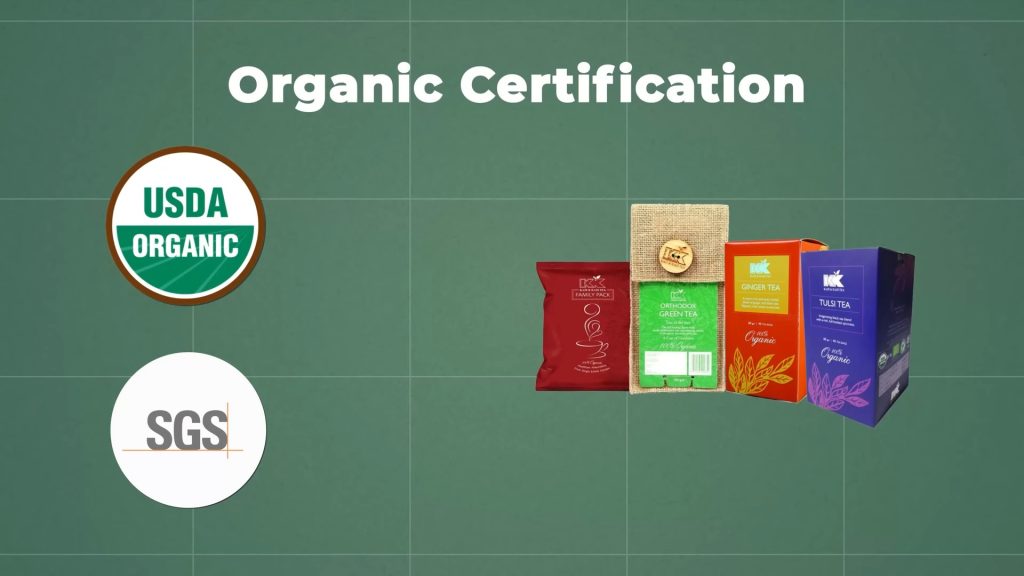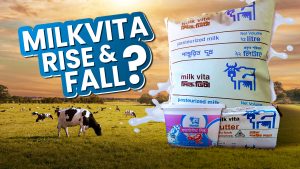Organic Farming is basically the type of farming where crops are produced in an environmentally friendly and economically viable manner. The popularity of organic food products and organic farming is constantly increasing around the world. Even in 2010, where the global organic food market was only $1 billion dollars, by 2020 it has become a market of about $200 billion. For the last few years, the demand for organic food products has been increasing too as the demand for organic food is increasing globally.
Overview
Organic farming basically refers to farming practices using completely organic materials without the use of in-organic or chemical fertilizers, pesticides, or genetically modified seeds. Farming was entirely organic for a long period of human history. But with the time being, as the population increased, farmers started to use chemical fertilizers and pesticides in agriculture to increase the production of crops. Especially during World War II, when there was a food crisis, besides increasing the use of machinery in agriculture, the use of synthetic fertilizers and chemical pesticides began to increase at a large rate, due to which the yield also increased. But while everyone was focused on increasing yields, they did not focus on the harmful aspects of the synthetic fertilizers and chemical pesticides for the soil and environment.
In the 1940s, the topic of organic farming came up in the book “Look to the Land” by author Walter James. In the 1950s, the sustainable agriculture movement became quite strong based on environmental concerns. The organic farming industry began to grow in the 1970s as people’s environmental awareness and demand for sustainable practices increased. In 1990, the US Congress passed the Organic Foods Production Act to develop national standards for organic food and fiber production. However, it took another decade to fully establish national organic standards in the USA, and on April 21, 2001, national organic standards were established. Which plays a very important role in organic farming adoption. People’s food habits have changed a lot with time.
Nowadays, people’s interest and awareness towards healthy food consumption has increased. Besides, thanks to the internet, everyone worldwide is getting to know the nutritional value and benefits of organic food. Which is playing an important role in increasing the demand and consumption of organic food globally. Today, almost every supermarket in the world, especially in the USA, has a separate section for organic food. Also, retail shops selling only organic food and e-commerce are also becoming popular around the world.
The global organic food industry has grown in quite a dramatic way over the past decade. Even in 2010, where the global organic food market was only $1 billion, it exceeded 110 billion dollars by 2016. It was then estimated that the industry will grow at a CAGR of more than 16 percent annually from FY 2017 and reach around $263 billion by FY 2022. However, due to the global corona pandemic in 2020 and 2021, and the war between the world’s two largest food producing countries Russia and Ukraine in 2022, the market size of the industry stood at $259 billion at the end of the 2022 fiscal year. However, it starts to recover again in FY 2023 and the market size will grow at about 14 (13.7%) percent CAGR to about $295 (294.54) billion. Meanwhile, if all goes well, the global organic food industry is expected to grow at a CAGR of around 15 (14.8%) percent in the coming years to reach $512 billion by 2027. According to a report by Straits Research, about two and a half (2.4 million) million producers in 179 countries around the world have already adopted organic agriculture.

Organic Process
Organic farming is basically done through natural biological processes in collaboration with scientific and traditional farming practices with modern technology. This farming method basically belongs to agro-ecology where the production of crops is done in an environmentally friendly manner while keeping quality standards intact. The principal methods of organic farming include rotation farming, natural fertilizer inputs, insect control systems through chemical pesticides, and mechanical cultivation.
It is very important to review the prime elements for organic farming like soil structure and nutrition level check, climate control, organic matter sourcing etc. Generally, organic farming cannot be done on any type of land. Rather, organic farming requires land where no synthetic fertilizers or pesticides have been used for the full three years prior to cultivation, and soil properties have returned to natural levels over time. After selecting the land, the feasibility of the land has to be confirmed by checking whether there is a possibility of polluting substances coming through the surrounding land or water and air, harmful chemical elements such as lead, arsenic, mercury etc. Land earmarked for organic farming must be at least 1-3 km away from regular farming land to get organic certification. If these criteria can be met, the land will be considered suitable for organic farming.

After the selection of land comes the issue of crop selection. Seed type is very important in crop selection. One of the main conditions of organic farming is to use non-GMO seeds instead of genetically modified GMO seeds. Besides, organic farming requires crop rotation or sowing of different crops in the same land every season and parallel seeding and harvesting as the season changes to maintain the quality of the land. Crop rotation can prevent soil erosion and increase the nutritional value of crops. Due to the cultivation of different crops on the same land, the yield of different crops is increased and the cost of production is also reduced to a large extent. One of the most important parts of organic farming is ensuring the application of organic fertilizers. Due to the application of chemical fertilizers, the productivity of the soil increases, but the quality of the soil deteriorates and the nutritional value of the crops also decreases. Therefore, the use of organic fertilizers in organic farming improves various soil properties such as moisture level, nitrogen, and nutrition for microorganisms. Also, the use of organic fertilizers can also make the cropland fertile and produce high yields. However, in the case of using organic fertilizers, soil testing is mandatory and it should be ensured that there are no synthetic additives with it. As organic farming prohibits the use of all types of chemicals, integrated weed management systems are used to control weeds along with crops. In this case, the fields are organically managed through the use of irrigation, crop-friendly animals and machinery, layering of various organic materials to retain soil moisture, germ and pest control through solarization for soil temperature control, and application of crop-protecting insects. Also, farmers need to control the weed.

Rise of Organic Farming in Bangladesh
Currently, food awareness has increased among the people of Bangladesh. Due to which, the popularity of organic food as well as organic farming has also increased. Organic farming in Bangladesh started in 1975, a few years after independence. This Non-Government Organization was formed by bringing together several Farmers’ Associations with the aim of improving the leadership, social, economic and political conditions of the then farmers.
In 1986, Kazi and Kazi tea farm, the country’s renowned tea producer, started its journey, which is the only certified organic farm in Bangladesh. The company has focused on soil improvement through relay cropping and covers cropping since its inception. Apart from this, the company also started using completely organic fertilizers in tea production. Kazi & Kazi tea farm has also received organic certification from “SGS and USDA”. Apart from Kazi & Kazi Tea Firm, Shahbazpur Tea Company is institutionally manufacturing organic food. Also, people of Rangpur’s Mithapukur Upazila are farming by using compost and crop residues instead of synthetic fertilizers.

On the other hand, farmers in Kaunia upazila of Rangpur are growing crops using vermi-compost fertilizers which contain high amounts of nitrogen, phosphorus and potassium. Bangladesh Agricultural Research Institute (BARI) under government sponsorship has developed a biologically active organic fertilizer, which is very effective as a natural fertilizer. Also, the Bangladesh government is encouraging the farmers of the country to do organic farming through several NGOs. Among them, the names of NGOs like Ubinig, Naya Krishi are notable. Through these NGOs it has been possible to bring more than four lakh farmers under long-term and practical organic farming training. Besides training, these NGOs guide farmers for 12 to 15 years to make their land suitable for organic farming. BARI is giving this facility up to 7 years maximum among Govt institutions. Although the progress of organic farming in Bangladesh is progressing very slowly. So far it has been possible to convert 1,162 hectares of land into organic farmland which is only 0.01 percent of the potential land.
Although the adoption of organic farming in Bangladesh is slow, the country has already developed several e-commerce businesses dealing with fresh and authentic food products. These companies are sourcing directly from growers, processing it and supplying it to their own e-commerce sites as well as other e-commerce and supershops. In Bangladesh, the practice of organic farming is still low, so most companies are focusing more on fresh and authentic food products instead of organic food. Among them, Organic Nutrition Ltd. is working on research and distribution of organic, non-GMO and functional food in Bangladesh.

Since its inception in 2016, the company has engaged food scientists, microbiologists, biochemists and nutritionists in research and development on how to produce functional food from organic food. The term functional food was originally used in Japan in the 1980s. Functional food refers to a type of food that is a type of processed food product that has nutritional benefits as well as several health benefits. Organic Nutrition Ltd. introduced the first functional food in the Bangladesh market in 2020. Currently, the company offers several functional food products related to female health, bone and joint health, digestive health, and immune health as well as organic honey.

Challenges
Bangladesh ranks 94th in terms of area and is one of the most densely populated countries in the world, with 1,119 people per square kilometer. In this country of huge population, the amount of land for cultivation is constantly decreasing due to the development of necessary infrastructures, starting from housing for people, roads, schools, offices-courts etc. Apart from the loss of arable land due to river erosion and the decrease of underground water level, land in many parts of the country is losing its usefulness for cultivation.
There should be a distance of 3 km from the land designated for organic farming to the land for regular farming. In such a situation, it is almost impossible for the farmers of Bangladesh to follow organic farming methods. Since US, Europe, Brazil and Asia’s food grain producing countries like China, Vietnam are cultivated with a large area, the farmers of these countries can easily adopt organic farming. Hilly areas of the country have several vacant lands and relatively pollution-free environment and land, but it is not enough.
Again, in the case of selecting land for organic farming, the land that has been cultivated without using any kind of chemical pesticides or synthetic fertilizers for 3 years has to be selected. It is very difficult to get such land in Bangladesh. In that case, no crop can be grown on the land for at least 3 years to prepare the land for organic farming. Different types of organic fertilizers have to be applied to improve the quality of the soil in three years without growing any crop. Which actually will not be economically viable for any farmer of Bangladesh.
On the other hand, the price of organic food products like vegetables, fruits etc. is higher than regular vegetables or fruits in the market. Basically, due to the use of non-GMO seeds and no synthetic fertilizers or chemical pesticides, the production in organic farming is relatively low and the production difficulty per unit is high. Which is not possible for most of the customers in the country. As a result, the organic food industry in Bangladesh is not yet well developed. But slowly people are increasing the tendency to consume healthy food free of harmful pesticides. Therefore, it is expected that the demand for organic food will increase in Bangladesh in the future.










Leave a Comment